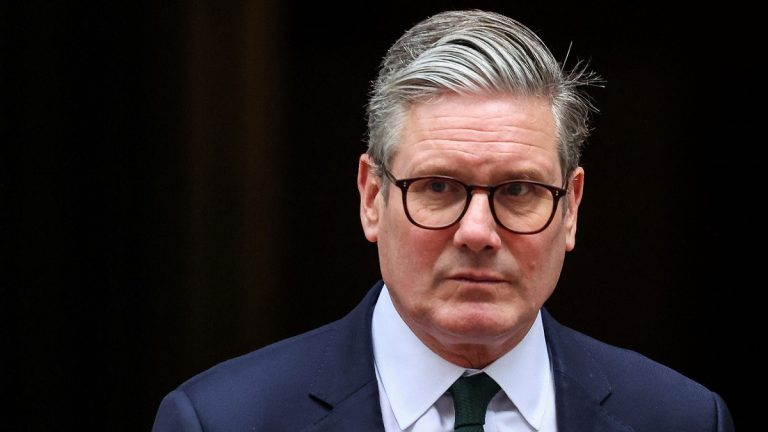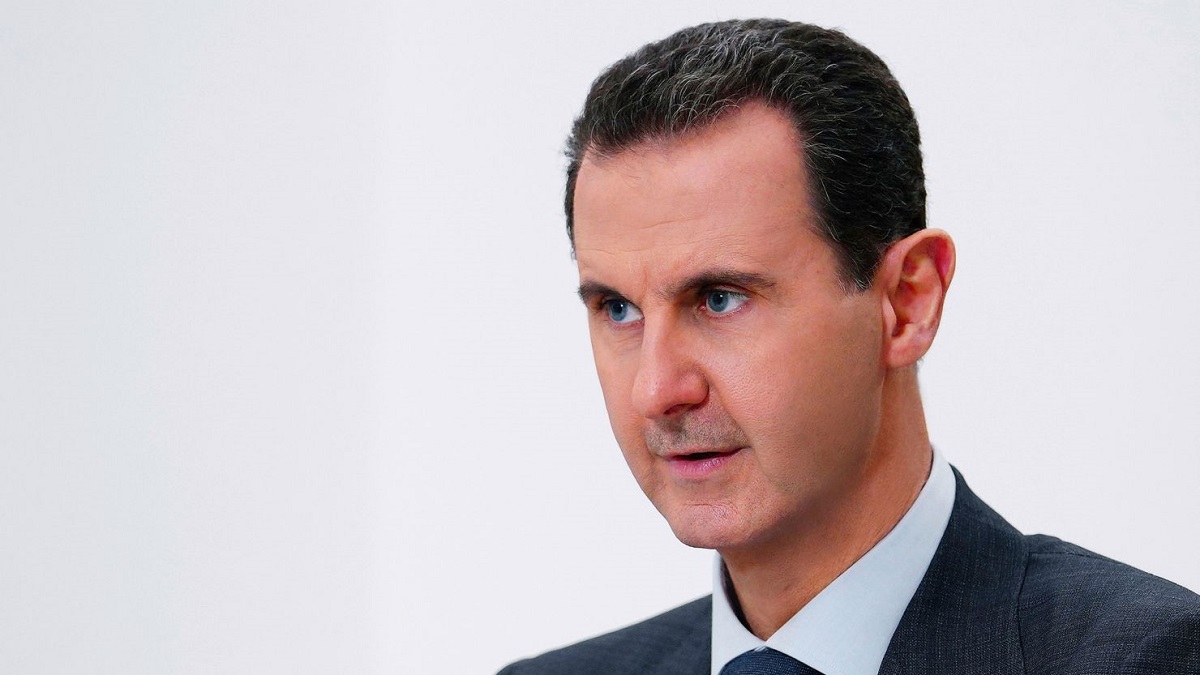
How the collapse of Bashar al-Assad’s regime is changing the balance of power in the Middle East
The local conflict in Syria has brought global changes to the country and the region. Russia has largely lost influence and is unlikely to retain its bases in Tartus and Khmeimim. The U.S. will have a strained relationship with Ankara due to their subversive activities in Syria and disagreements over the Kurdish issue. Iran suffered image and combat losses. Israel and Turkey benefited. Read more about what happened in our article.
Destabilization of Syria
The new world turbulence caused by Cold War 2.0 and the arrival of Donald Trump in the White House could not help but bring surprises. Such was the case on November 27, when pro-Turkish Syrian rebel forces in northern Syria broke through the De-escalation Zone and began advancing toward the city of Aleppo. The attacking forces included the Islamist groups Hayat Tahrir al-Sham (HTS), Jaysh al-Izza and the Turkish-controlled National Syrian Army. They all unanimously claimed that the offensive was a response to the increased shelling of Idlib province in recent weeks and had “constructive goals.”
Tensions have been rising in Syria’s de-escalation zone throughout the past year. Government forces and Islamist groups have been preparing for pre-emptive strikes on Aleppo’s border areas, fearing a change in the status quo. But being under Turkish control, the militants depended on Ankara’s position, which feared that a new round of conflict would create a critical situation in the humanitarian and migration spheres, as well as contribute to social upheaval in the country.
For a long time, Erdogan preferred to negotiate with the government of Bashar al-Assad on the Turkish zone of influence and joint actions against Kurdish formations, following the general logic of normalization of relations between Syria and the Gulf countries. But the situation changed in the second half of November 2024. The coming to power of Donald Trump gave Erdogan more freedom of action in Syria. Perhaps the new U.S. president envisioned that Turkey would contain Russia and Iran on its own. Assad’s unwillingness to make concessions and promote the idea of a “united and indivisible Syria,” pushed Erdogan to take tougher measures, which translated into attacking the Islamists.
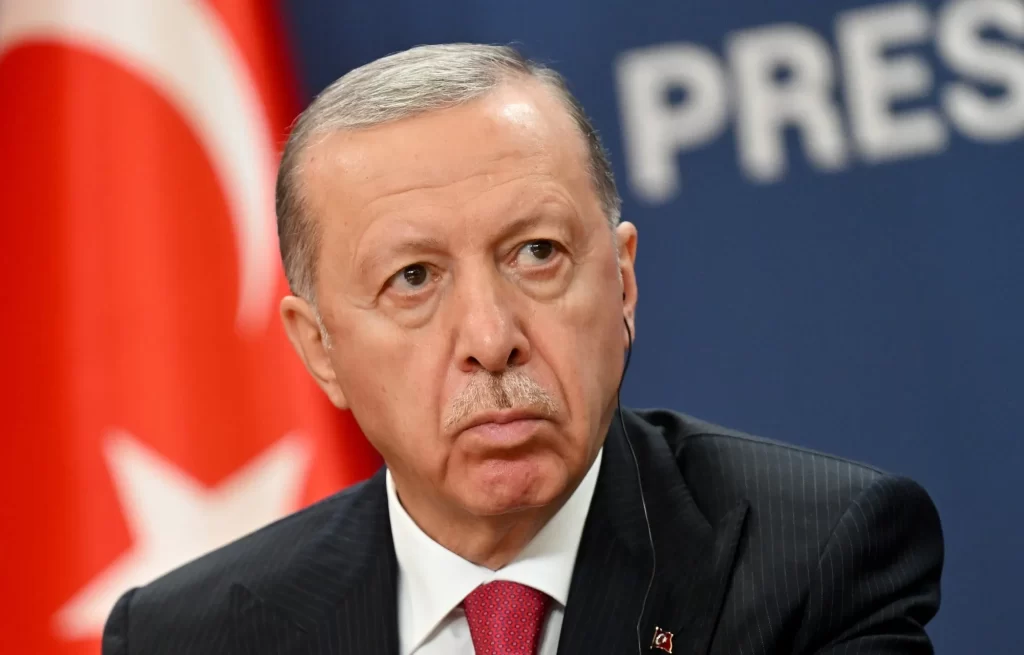
Photo by Oliver Bunic/ Bloomberg
Several factors explain the weakened position of government forces. Iranian units, including their proxy Katai’b Hezbollah, had previously left the conflict zone to counter threats from Tel Aviv. The Iranian-backed Shiite group once played a key role in returning territories of northwestern Syria to Assad. In the conflict with the IDF, Syria served as a logistical base for Hezbollah’s missile buildup in Lebanon. But in recent months, with the stabilization of the front in northern Syria, pro-Iranian forces have shifted their attention to Israel and moved most of their forces into Lebanon. In early October, Tel Aviv launched a major strike against Hezbollah, killing popular Arab leader Hassan Nasrallah and other senior commanders and officers. The timing of the attack points to the improvised nature of the militants’ operation, the success of which exceeded all expectations. American and European analysts note that the militants’ active actions are due to three factors: Hezbollah’s focus on events in Lebanon, the reduction in the number of Russian PMCs in Syria and the deterioration of the SAR army in recent years, whose fighters preferred dangerous captivity to fighting for Assad’s interests.
The Syrian army and Russian advisers, confident in preserving the status quo, did not expect an escalation in the Aleppo area. The militants successfully took advantage of the security vacuum, the weakening of Hezbollah, the new White House administration’s pressure on Iran, and Russia’s limited military and political resources in the region due to the Ukrainian crisis. Initially, it seemed to be a slight revision of the positions of the opposing sides, but a day later on November 28, Aleppo fell, and by December 3, the Islamists took possession of the strategically important Hama. By December 8, the militants had already taken possession of Damascus and Hama, and Bashar al-Assad had resigned and fled to Moscow.
Why did the government collapse like a sand castle?
Several factors explain the weakened position of government forces. Iranian units, including their proxy Kata’ib Hezbollah, had previously left the conflict zone to counter threats from Tel Aviv. The Iranian-backed Shiite group once played a key role in returning territories of northwestern Syria to Assad. In the conflict with the IDF, Syria served as a logistical base for Hezbollah’s missile buildup in Lebanon. But in recent months, with the stabilization of the front in northern Syria, pro-Iranian forces have shifted their attention to Israel and moved most of their forces into Lebanon. In early October, Tel Aviv launched a major strike against Hezbollah, killing popular Arab leader Hassan Nasrallah and other senior commanders and officers.
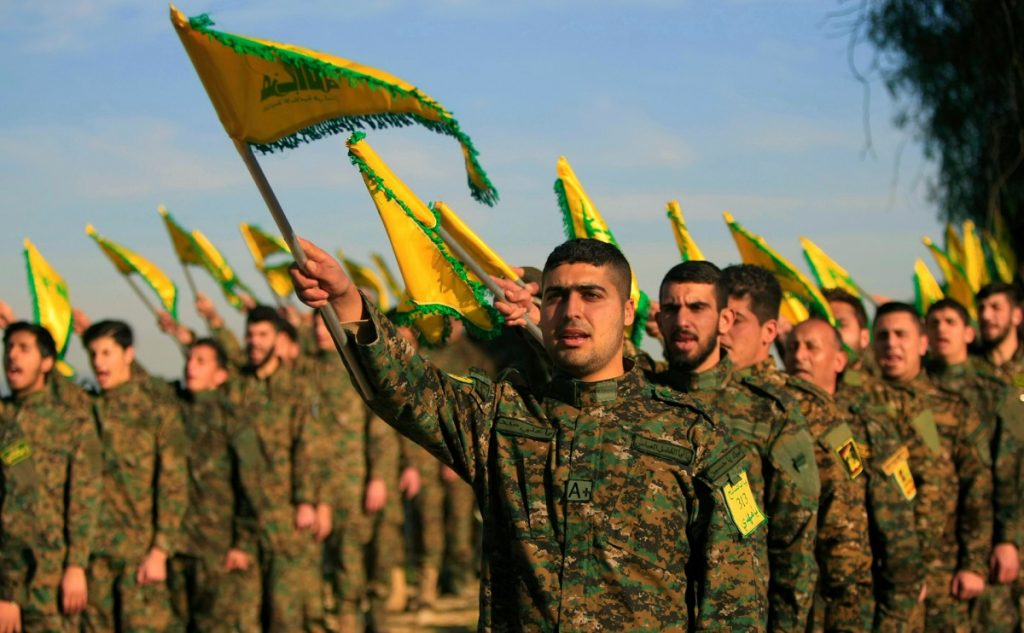
The timing of the attack points to the improvised nature of the militants’ operation, the success of which exceeded all expectations. American and European analysts note that the militants’ active actions are due to three factors: Hezbollah’s focus on events in Lebanon, the reduction in the number of Russian PMCs in Syria and the deterioration of the SAR army in recent years, whose fighters preferred dangerous captivity to fighting for Assad’s interests.
Opposition forces believe that at the time of the consolidation of its HTS forces, the Syrian Army was degraded and underfunded. The Syrian Arab Republic (SAR) military was surviving on self-sufficiency, often by illegal means. And it was the disillusionment with Assad by forces close to him and his loyal population that was the main cause of the collapse.
In nine notionally peaceful years, Assad failed to build an effective state and increased the level of theft and desperation tenfold. He lived as if on the “last day”, adhering to the French principle of “after us there will be a flood”. The SAR president has badly screwed his allies in Moscow and Washington, who have not even tried to keep him in power.
How the U.S. sees the situation in Syria
The escalation in Syria has elicited a sluggish response in Washington. During the transition of power, the Democrats were focused on handing Trump the most problematic legacy possible. It was profitable for Biden to ignore the aggravation of the situation in the Syrian Arab Republic, as it is to his advantage to cause chaos in all regions of the world, because Trump will be the one to deal with the consequences. In addition, the Democrats complicated relations with Ankara for the Republicans, who are traditionally closer to the Turkish lobby. But now the new administration’s relations with Turkey promise to be frankly problematic, especially because Trump’s team is now largely anti-Turkish.

The situation is also aggravated by the clashes that have begun with Kurdish forces because Trump’s team has a generally pro-Kurdish bias. U.S. National Security Advisor Michael Waltz calls for sanctions against Turkey for its anti-Kurdish policy. James Risch, chairman of the U.S. Senate Foreign Relations Committee, also takes the same stance. Ankara, on the other hand, is trying to hastily strengthen its own position ahead of very difficult negotiations with Trump, as the escalation in Syria has really tangled the cards for his team’s foreign policy bloc. They were just getting set up to deal with Lebanon, Gaza and Israel, and now they have to deal with Turkey, which has taken advantage of the period of instability in Washington. So the pressure on Turkey will come from all sides, which will not allow it to take full advantage of its victory.
The chaotic situation in Syria has put Congress in an awkward position, and lawmakers associated with the Turkish lobby are trying not to force the issue as more and more criticism is voiced against the Idlib militants. The agenda has changed dramatically since 2013, and they are no longer labeled “democracy fighters” in Washington, fearing overreach by their Turkish patrons. Isolationist congressmen close to Trump fear the strengthening of terrorist forces in Syria, because Trump’s plan was to quickly withdraw the remaining U.S. contingent from Syria after the Iraqi contingent, but now the prospects for that are becoming dim.
Against the backdrop of Syria’s collapse, Washington recalled its term from the Arab Spring, which roughly sounded like “catastrophic success”. The rapid overthrow of Middle Eastern regimes brought Islamists to power, provoked a major migration crisis and a new wave of terrorism. In Washington, they hope to take advantage of the situation to weaken Iran’s position in the Middle East even if now, compared to 10 years ago, the U.S. military presence in the region has been reduced to a minimum of 40,000 soldiers and there are no opportunities to increase it. Resources are limited and they will be used to try to seize the initiative from Turkey and Qatar. However this will be a headache for Trump, and his team is already struggling between “radicals” who are ready to squeeze Iran and isolationists who want to remove themselves from the situation in the Middle East.
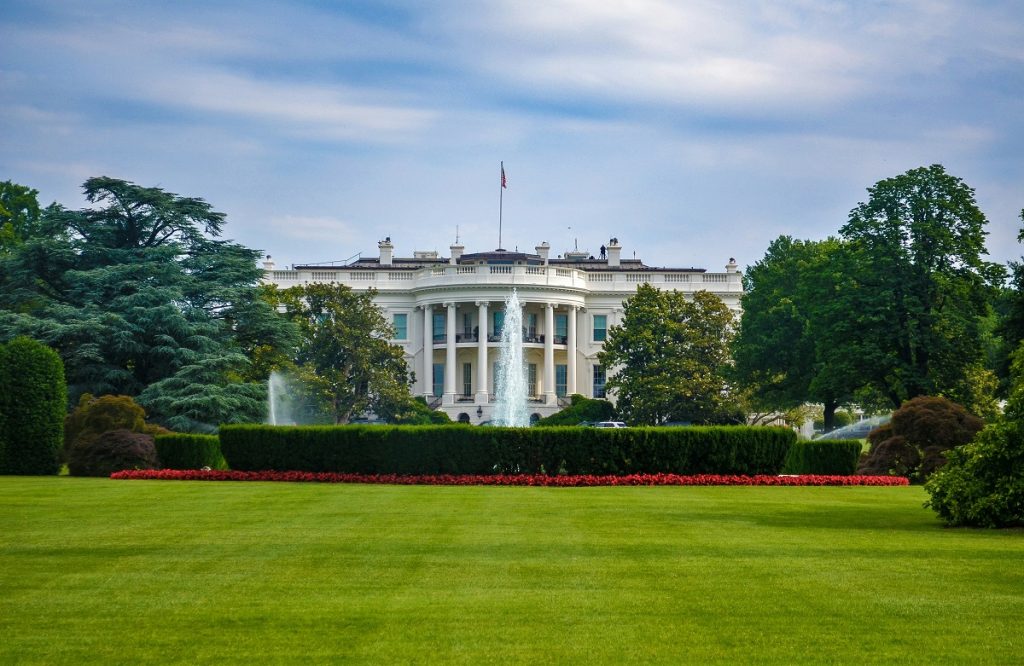
Trump is more inclined to the second strategy, and direct involvement in the Syrian conflict is not particularly popular in the United States. Only 30% of Americans before 2024 were even aware of the presence of American troops there. Recently, the next U.S. soldiers had to be hastily evacuated from Syria, and military logistics there are very difficult. However, the pro-Kurdish lobby represented by Mike Waltz and Marco Rubio will lobby for the allocation of resources for the establishment of Kurdish statehood. It is true that negotiations with Ankara will obviously not be easy with the strengthening of pro-Turkish forces. The split in the new team promises to be serious amid all the chaos that Trump inherited from Biden.
What about the other players?
Britain, hostile to Trump, is getting involved in the Syrian crisis on the side of Turkey. While Washington is still divided over the regime change in Syria, in London there is a clear consensus in favor of the new government. One of the main advocates of the reformatization of Syria in the West is Charles Lister, a key British expert on the Middle East working at the American Brookings. Military cooperation with Ankara is also intensifying, with London selling 12 of its C-130J Hercules military transport planes to Turkey at once. The irony is that the UK is now practically without its own military transport aircraft, since this fits into the general concept of Labor’s policy of “optimizing” the country’s military heritage.
The UK will likely be the first country to begin lifting sanctions against the new government in Syria. But more importantly, London will soon come under pressure from the U.S. So attempts to create problems for Trump are unlikely to have a favorable outcome.
At the same time, Russia currently has no opportunity to quickly seize the initiative, given the rapid fall of the Assad regime. Moscow is unlikely to retain its bases in Tartus and Khmeimim, content with a calm withdrawal of troops under Ankara’s guarantees. International observers note that the escalation of the conflict is taking place against the backdrop of growing disagreements between the guarantor countries of the Astana process. In particular, Turkey, which supports some of the opposition groups, has increased its influence in Syria, which is causing concern on the part of Iran and Russia. Dr. Bekir Atacan, director of the Istanbul think tank, denied from Istanbul that Turkey is responsible for all the warring groups in northern Syria although he noted that some groups are openly supported by Turkey.

However, there is another side to the issue. The Islamists pose a constant threat to Turkey, given the discontent of millions of Syrian refugees with the jihadists’ rule and their military buildup, which was only a matter of time before they would be used. Ankara had likely previously restrained Hayat Tahrir al-Sham from carrying out large-scale operations but after the failure of negotiations with Damascus and the continued strikes on Idlib, Ankara lifted the restrictions, possibly even supporting the HTS offensive. The unexpected success of the operation left Turkey with a choice: ignore the situation and exploit Assad’s ouster, or intervene and risk losing control of HTS and provoking a conflict with Iran. Relations with Israel, which does not need Turkish proxies on its borders, could also become strained.
Later, there were reports of Turkey transferring new batches of weapons, including armored vehicles, to border areas. According to analysts, this may be connected with Turkey’s attempt to consolidate its influence in the region and use military actions as a tool to put pressure on its opponents. In addition, the Turkish president used the term “the people of Syria” to refer to armed rebels. Although photos published in the media show these people using symbols, flags of ISIS and other terrorist groups, and executing captured soldiers of the SAR army.
There are ironies, too, when the Turkestan Islamic Party (Uyghur), whose members participated in the offensive, declared an alliance with the state of Israel. In 2017, there were meetings between Tel Aviv representatives and Uyghur militants in Syria, seeking to apply the “Zionist model” in China. It is possible that the party, closely linked to the HTS militants and rumored to be sponsored by Turkey, was acting on orders from Israel after Netanyahu’s speech on Lebanon and Gaza. These facts may be exaggerated, although the attack on Aleppo is the result of a joint Israeli-Turkish strategy, supported by the United States, aimed at cutting off Iranian supplies to Hezbollah and destabilizing the region. This could force Russia to redeploy forces from Ukraine to protect its interests in Syria.
The situation is also ambiguous for Europeans, who verbally rejoice at the collapse of the Assad regime. The latest round of escalation coincided with the EU’s plans to open a permanent mission in Damascus. The new agency is designed to unite the fragmented positions of EU member states on the Syrian issue. One of the potential topics of discussion between Brussels and the new Syrian government could be the repatriation of Syrian citizens to government-controlled territories. The escalation is likely to disrupt this negotiating track.
Of course, the situation in Syria goes beyond a local conflict, reflecting regional and international tensions. The fighting, which took place for the first time in four years, has radically changed the balance of power in the country and the entire region, pitting local groups supported by Turkey against regional and international players. Turkey’s growing involvement, weak coordination among the ousted Assad’s allies, and continued support for individual opposition groups from outside players set the stage for the conflict to deepen further in the coming months.
Russia, Iran, Turkey, Israel, the Kurds and the Islamists will be left alone with each other, and in the conditions of global instability, while a new escalation in Syria threatens an even bloodier civil war. To avoid it, it will be necessary to make great political and diplomatic efforts.

